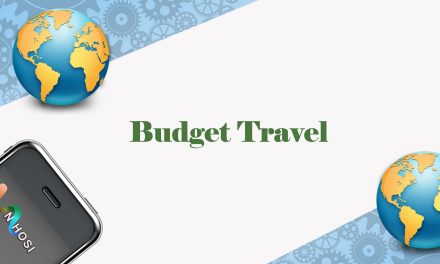In today’s fast-paced, consumer-driven world, learning the art of wise money management may be a difficult task. Despite earning a fair wage, many of us find ourselves living paycheck to paycheck, unclear of where our money goes each month. A lack of financial knowledge or an organized strategy often leaves us prone to stress, debt, and financial insecurity.
What is the solution? Understanding and putting into practice good budgeting.
A well-structured budget is much more than a mundane financial tool; it is a reflection of our life’s blueprint. It offers a roadmap, guiding us on the path to financial success, providing a clear picture of our income and expenses, and ensuring we have enough to cover our needs and wants without slipping into debt.
Budgeting helps us set our financial boundaries while granting the freedom to live within them. It empowers us to take control of our finances, giving us the capability to plan, predict, and adjust to life’s financial hurdles.
Nevertheless, there is more to budgeting than just reducing expenses or putting a cap on expenditures. It comes down to making educated financial choices that are in line with the objectives we have set for ourselves in life. Finding a good balance between the pleasure of now and the security of tomorrow requires an awareness of the distinction between our needs and our desires, the establishment of spending priorities, and the pursuit of a healthy financial future.
This article seeks to disclose the mysteries of intelligent money management and provide you with budgeting advice that can transform your financial situation. Whether you are a novice just beginning your financial journey or a person seeking greater financial control, the following sections will provide you with valuable insight and advice.
Embrace the adventure as we investigate the importance of budgeting, the building blocks of responsible financial management, actionable budgeting advice for achieving financial success, the significance of the power of compound interest, strategies for managing debt effectively, and a great deal more. Let’s get started on the path to monetary prosperity together by taking the first step. Let’s put money to work for us, rather than letting it work against us. Hello, and welcome to the exciting world of astute financial planning and budgeting!
Why Is Budgeting Essential?
In our journey of smart money management, budgeting is the compass that keeps us on track. It is the process of creating a plan to spend your money, allowing us to predict whether we have enough funds to do the things we need or would like to do. Here’s why budgeting is essential for our financial well-being:
Control Over Your Money
Money, without a plan, has a way of slipping through our fingers, leaving us clueless about our financial status. A comprehensive budget provides us with a clear picture of our income, fixed expenses, variable costs, and potential savings. It is a tool that empowers us to direct our money towards our priorities, rather than wondering where it all went.
By earmarking each pound for a specific purpose, we gain control over our money. Budgeting ensures we don’t overspend on non-essentials, accumulate unnecessary debt, or fall short when it’s time to pay the bills. It gives us the power to decide how to allocate our money based on our needs and goals.
Freedom from Financial Anxiety
Financial uncertainties can lead to a significant amount of stress. When we’re unsure about making ends meet or facing an unexpected expense, it can result in sleepless nights and strained relationships. A budget serves as a financial safety net, providing visibility over our financial situation and preparing us for unforeseen costs.
When we have a budget, we know how much we can spend, how much we can save, and how much we can set aside for emergencies. It also allows us to build a buffer for unexpected expenses, reducing the likelihood of falling into debt. Therefore, budgeting brings financial predictability and reduces anxiety associated with money matters.
Facilitates Savings and Financial Goals
Budgeting is crucial for anyone with financial aspirations. Whether buying a new car, saving for retirement, paying off debts, or planning a dream holiday, a budget is a roadmap to our financial goals.
It helps us to set aside money for our objectives regularly, making them achievable and realistic. By distinguishing between our needs and wants and controlling our spending habits, we can free up funds to contribute to our goals, helping us to achieve them faster.
Encourages Responsible Spending
Without a budget, it’s easy to give in to impulse purchases or overspend on luxuries, which can lead to a cycle of debt. A budget encourages responsible spending by providing a clear view of our income and expenses.
Defining limits for different categories of spending keeps us in check and helps prevent financial missteps. It encourages us to evaluate our purchases critically, ensuring they align with our financial plan and goals.
In summary, budgeting is an indispensable tool in smart money management. It provides control over our money, reduces financial stress, enables us to save for our goals, and promotes responsible spending. By understanding the value of budgeting, we take the first step towards financial success.
The Pillars of Smart Money Management
Smart money management is built upon four pillars – understanding your income and expenses, setting financial goals, budgeting, and regular reviews and adjustments. Each of these pillars plays a crucial role in maintaining financial health and steering towards financial success. Let’s delve into each one of them.
Understand Your Income and Expenses
The first pillar of smart money management is understanding your income and expenses. Without a clear understanding of your financial inflows and outflows, it’s impossible to create a realistic budget or set attainable financial goals.
When it comes to income, calculate your total monthly earnings. Remember, this should include all sources such as your salary, dividends from investments, rental income, or any side gigs.
Next, list your expenses. Expenses typically fall into two categories: fixed and variable. Fixed expenses are those that remain constant each month, like rent or mortgage payments, insurance, and subscriptions. Variable expenses fluctuate month-to-month and include costs like groceries, eating out, entertainment, and fuel.
Understanding your income and expenses allows you to see where your money is going, which is critical for financial planning and making necessary lifestyle changes.
Setting Financial Goals
Once you have a clear picture of your income and expenses, the next step is setting financial goals. These goals provide a direction for your money and help to maintain focus when it comes to financial decisions.
Goals can be short-term (like saving for a holiday), mid-term (like buying a car), or long-term (like retirement savings). Make sure your goals are SMART – Specific, Measurable, Achievable, Relevant, and Time-bound.
For instance, instead of saying, “I want to save money,” say, “I want to save £5,000 for a down payment on a car in two years.” This SMART goal clearly defines what you’re trying to achieve, how much you need to save, and the timeline to reach the goal.
Budgeting
Armed with an understanding of your income, expenses, and goals, you can now create a realistic and effective budget. A budget is your financial plan that outlines how your income should be distributed across your expenses, savings, and financial goals.
The key to effective budgeting is flexibility. Your budget should not be a financial straitjacket, limiting your freedom. Instead, it should be a living document that adapts to your life changes and helps you make conscious financial decisions.
Allocate money for your needs first, followed by savings for your financial goals, and finally, your wants. Remember to also set aside a small portion for unexpected expenses. There are various budgeting methods available, and you can choose one that fits your lifestyle and preferences.
Regular Reviews and Adjustments
Finally, smart money management requires regular budget reviews and adjustments. Life is unpredictable – your income can change, new expenses may pop up, or your financial goals may evolve.
Regularly reviewing your budget allows you to catch any discrepancies and adjust your budget accordingly. Perhaps you’re consistently overspending in one category, or you’ve received a pay rise. Reviewing your budget helps you stay on top of these changes and ensures your budget continues to work for you.
Remember, the goal of smart money management is not just to restrict spending but to create a financial plan that supports your lifestyle and helps you achieve your financial goals. The four pillars – understanding income and expenses, setting financial goals, budgeting, and regular reviews – are all integral parts of this process. By mastering these, you’re well on your way to financial success.
Practical Budgeting Tips for Financial Success
Once you understand the pillars of smart money management, the next step is to implement this knowledge into practical budgeting strategies. Here are some tips that can guide you on your journey towards financial success:
Choose a Budgeting Method That Suits You
Not all budgeting methods are created equal. Some people might find success using the traditional pen-and-paper method, while others may prefer a digital approach using a budgeting app or spreadsheet. There are also various budgeting strategies like the 50/30/20 rule, envelope system, or zero-based budgeting. Experiment with different methods and strategies until you find one that suits your lifestyle and financial situation.
Prioritise Your Spending
One key aspect of successful budgeting is prioritising your spending. Start with necessities like rent or mortgage, utilities, food, and healthcare. Then, allocate funds towards your savings or debt repayment. Only after these important areas have been covered should you earmark money for non-essentials or ‘wants’.
Don’t Forget About Occasional Expenses
When budgeting, it’s easy to overlook occasional or annual expenses like car servicing, insurance premiums, or holiday spending. Failing to account for these can result in budget shortfalls. To avoid this, add a separate category in your budget for these occasional expenses, and contribute to it monthly.
Automate Your Savings
Automating your savings can take the guesswork out of budgeting. By setting up automatic transfers to your savings or investment account, you ensure that a portion of your income is saved immediately. This ‘pay yourself first’ approach guarantees you’re steadily working towards your financial goals without the risk of spending the money elsewhere.
Build an Emergency Fund
An emergency fund is a safety net that can cover unexpected expenses or income loss. It is advisable to have three to six months’ worth of living expenses saved up in an easily accessible account. This cushion can help you manage financial emergencies without derailing your budget or falling into debt.
Adjust Your Budget as Needed
Your budget isn’t set in stone. As your life circumstances change, so should your budget. Regularly reviewing and adjusting your budget ensures it remains relevant and effective. If you consistently overspend in one category or have a change in income, update your budget to reflect these changes.
Be Patient and Persistent
Remember, budgeting is a skill, and it takes time to master it. You may not get it right the first time, and that’s okay. Be patient with yourself, learn from your mistakes, and stay persistent. Over time, you’ll learn to make better financial decisions and get closer to your financial goals.
These practical tips can help you make the most of your budgeting efforts. Remember, the goal of budgeting isn’t to limit your spending but to empower you to make informed financial decisions that align with your life’s goals. By prioritising your spending, remembering occasional expenses, automating your savings, building an emergency fund, and being patient and persistent, you can set yourself up for financial success.
The Power of Compound Interest
Einstein allegedly referred to compound interest as the ‘eighth wonder of the world’, and with good reason. When leveraged correctly, compound interest can serve as a powerful tool in our financial arsenal, turning small, regular investments into a substantial sum over time. But what exactly is compound interest, and how can we harness its power?
Understanding Compound Interest
At its core, compound interest is the concept of earning interest on both the initial amount of money saved or invested (the principal) and the interest that has already been added to it. In other words, it’s “interest on interest.”
To illustrate, let’s assume you deposit £1,000 into a savings account offering an annual interest rate of 5%. After the first year, you’d earn £50 in interest, bringing your total balance to £1,050. In the second year, you’d earn interest on £1,050 instead of your original £1,000. This process continues for every period that the money is left to grow.
As a result, your money grows at an increasing rate. The longer you leave your money, the more significant the compounding effect.
Harnessing the Power of Compound Interest
Here are some ways to take advantage of compound interest:
Start Saving Early
The key to maximising the benefits of compound interest lies in starting early. The longer your money has time to compound, the greater your returns will be. Even if you can only afford to save or invest small amounts, starting early can lead to substantial growth over time.
Regularly Contribute to Savings or Investment Accounts
Regular contributions to your savings or investment account not only increase the principal amount but also the interest that is being compounded. Even small, regular contributions can lead to significant gains over time due to the power of compounding.
Reinvest Your Earnings
Another important strategy is to reinvest any interest, dividends, or capital gains earned on your investments. By doing so, you add to your principal amount, leading to increased compound interest over time.
Choose Investments Wisely
Different savings and investment options offer different rates of return. Higher interest rates lead to more significant compounding over time. Therefore, wisely choosing your investments is crucial. Always remember, however, that higher returns often come with higher risks. Balancing your risk tolerance with your financial goals is key.
Limit Withdrawals
While it may be tempting to withdraw earnings, doing so interrupts the compounding process. Unless necessary, try to limit withdrawals to allow your money to continue growing.
The power of compound interest lies in its ability to exponentially increase your savings or investments over time. By understanding this concept and utilising strategies like starting early, regularly contributing, reinvesting earnings, choosing investments wisely, and limiting withdrawals, you can set a strong foundation for financial success. Indeed, with patience and consistency, compound interest can be your silent wealth-building partner.
Debt Management
Debt management is a critical aspect of financial health and stability. With proper debt management strategies, you can effectively handle your current debt and avoid falling into future debt traps. Here’s how to navigate the realm of debt management.
Understand Your Debt
The first step in debt management is understanding the extent of your debt. List down all your debts, including credit card balances, loans, mortgages, and overdrafts. Include the total amount owed, the interest rate, monthly payments, and due dates. Having a clear picture of your overall debt can help devise an effective repayment strategy.
Prioritise Your Debts
Once you understand your debts, prioritise them. A common strategy is to focus on paying off the debt with the highest interest rate first, known as the ‘avalanche’ method. This approach can save you the most money in interest over time.
Alternatively, you might prefer the ‘snowball’ method, which involves paying off the smallest debt first while making minimum payments on the rest. This can provide quick wins and motivate you to stick with your debt repayment plan.
Create a Debt Repayment Plan
Now that you’ve prioritised your debts, you need to establish a repayment plan. This involves determining how much money you can allocate towards debt repayment each month.
Review your budget and see where you can make cuts to free up more money for debt repayment. This may involve cutting back on non-essential expenses or finding ways to increase your income.
Avoid Accumulating More Debt
While you’re working on paying off your existing debt, it’s crucial to avoid accumulating more. This might mean resisting the temptation to use credit cards for unnecessary purchases or declining offers for new credit.
Instead, focus on living within your means and only borrow when absolutely necessary. Remember, the goal is not just to get out of debt but to stay out of debt.
Consider Seeking Professional Help
If your debt feels overwhelming, consider seeking professional help. Various nonprofit credit counselling organisations can provide guidance and help you develop a customised debt management plan. They can also negotiate with creditors on your behalf to lower interest rates or waive fees.
In conclusion, effective debt management is all about understanding your debt, prioritising repayments, avoiding new debt, and seeking professional help if necessary. Remember, being in debt is not a life sentence. With discipline, perseverance, and smart management, you can regain control of your finances and work your way towards a debt-free life.
Conclusion
Understanding and mastering smart money management and budgeting skills are critical for achieving financial success. With these tips and strategies, you can take control of your financial situation, reduce stress, and start working towards your financial goals.
Take control of your finances. Start your journey towards smart money management and financial success with these tips and techniques. Keep in mind, the road to financial success isn’t always easy, but with persistence, knowledge, and smart budgeting, you can create a financially secure future. Remember, the best time to start is now!
Note: This article is for informational purposes only and should not be considered as financial advice. Always consult with a certified financial advisor before making any significant financial decisions.












Subscribe To Our Newsletter
Join our mailing list to receive the latest news and updates from our team.
You have Successfully Subscribed!